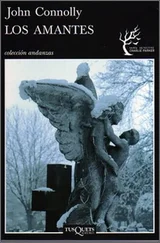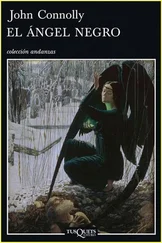That was about as interesting as things got. For the most part, she drove around the island, familiarizing herself with its roads and trails, talking to people as they went about their daily business. Occasionally she made contact with Dupree, but he seemed distracted. When the light began to fade, she returned to the station house and stayed there.
She went upstairs to the little galley kitchen beside the rec room, poured chicken soup from a can into a plastic bowl, then placed the bowl in the microwave. She took a book from her pack, lay back on the sofa, and started to read. There was still some time to kill before the ferry arrived.
Out on Sunset Road, Doug Newton checked on his mother. Her breathing was shallow and the dark patches around her eyes were like new bruises. He touched the old woman’s skin with the backs of his fingers. She felt cold, even though the radiators were turned up as high as they would go. Doug went to the hall closet and took out another comforter. He laid it on her bed, tucking it in beneath her chin, then walked to the alcove window and looked out onto his yard. The exterior lights were on and he could see the snow falling and the shapes of the trees slowly emerging as the flakes came to rest upon them. Beyond, there was only darkness.
Doug tugged at the lock on the window. It was firmly closed, as were all the windows in the house. He recalled what he believed he had seen: a little girl at his mother’s half-open window, her fingers prising at the gap to widen it. When Doug had entered the room, the girl had stared at him for no more than a second or two, then retreated. By the time Doug reached the window, she was gone from sight. The girl was five or six years of age, or so he had told Joe Dupree, but Doug had said that last part with a slight tremor of doubt in his voice, because the girl might have had the body of a child, but her eyes were much older, and her mouth was all wrong. It was very round, like it was about to give a kiss.
The funny thing about it was that Joe Dupree, old Melancholy Joe himself, hadn’t laughed at him, or accused him of wasting police time the way that other cop Tuttle had. Instead, Joe had told him to do just what he was doing: keep his mother warm, and keep the doors and windows locked, just in case.
Just in case.
Doug went back downstairs, turned on the TV, and tried to watch a game show through a snowstorm worse than the one outside.
On Church Road, Nancy and Linda Tooker were arguing over the dogs. They’d taken the collie and the German shepherd indoors because of the snow, but now the dogs just wouldn’t stop whining. Nancy had opened the kitchen door to see if they wanted to go back out, but the dogs had instead retreated farther into the house and were now lying in the darkness at the top of the stairs, still crying.
“It was you who wanted pedigree dogs,” said Nancy. “Damn things are too highly strung. I told you.”
“Can it!” said her sister. She was trying to connect to AOL, but with no success. Eventually, the screen just froze and she was forced to unplug the computer from the wall. When she tried to restart it, nothing happened.
“Nancy,” she said. “I think I broke the computer.”
But Nancy wasn’t listening. Instead, she watched through the kitchen window as gray shapes danced across the snow. Her sister joined her, and together they stood in silence as the insects flew among the snowflakes, seemingly untroubled by the wind that shook the windows and caused closed doors to strike against their frames. Once or twice they banged against the glass and the Tookers got a clear look at the ugly moths.
Without consulting each other, the two sisters locked all the doors, secured the windows, and took their places with the dogs.
In his little bedroom, Carl Lubey wrapped himself up warm and pulled on a pair of steel-capped boots. The wind tugged at the windows of his house, causing them to rattle furiously. What little warmth there was seeped out through countless cracks and gaps in the woodwork. Ron was the one with the talent for houses, not Carl. Carl was the mechanic; Ron was the builder, the handyman. Now his brother was gone and Carl was left alone to deal with the wind and the rain and the snow as best he could.
He went to his bedside locker and removed the Browning. It had a shitty plastic grip plate that was supposed to look like wood but didn’t, and the magazine catch jammed on occasion, but Carl wasn’t fussy. He didn’t think he’d have much call to use it, not if the visitors came through for him. If things went like they were supposed to, his brother would sleep easy in his grave tonight.
At the heart of the island, close by the Site, there was movement among the trees and beneath the earth. Despite a wind that blew hard from the west, shrubs bent toward the east, and flurries of snow rose in spirals and formed shapes that almost resembled the bodies of men, before they disintegrated and tumbled gently toward the ground. Seen from above, it might have appeared that gray light was seeping out from the ground, or a thin, dirty smoke that left no mark on the snow.
There were no more whispers. Now the wind sounded like voices, and the voices were joyful.
Macy spotted the ferry pulling into port from her vantage point on the second floor. Its arrival had been delayed by the weather, Thorson unwilling to push the ferry’s speed into little more than double figures. The faint streamer of smoke was barely visible through the thickening snow, although Thorson had lit the boat itself like a Christmas tree. It almost hurt her eyes to look at it.
“Ferry’s in,” she called to Dupree.
He was catching up on paperwork in the little office. The doors leading outside were now firmly closed and the heating had kicked in enough to enable him to remove his jacket.
“You don’t have to go,” he said. “I’m pretty sure it’s my turn.”
“Nah, I’m dressed for it. Besides, it will give me something to do.”
“Thanks,” he said, and returned to his reports.
The wind had picked up force and the snow blew directly into her face, stinging her cheeks. She removed the windshield cover from the Explorer and tossed it on the passenger seat, then started the engine and drove carefully down to the dock, parking over by the passenger shelter until the ferry came in. The chains on the wheels made a ratcheting sound on the road, and the snowplow attachment that she and Dupree had fitted on earlier that evening rattled against the grille.
A handful of passengers disembarked from the ferry, all of them apparently locals who raced for their own cars or caught rides from friends or family. Macy watched them leave, then saw another, smaller vessel heading into port. The water taxi docked and a harried-looking woman was helped out by the boatman. There seemed to be some argument, and Macy was about to head over and intervene when the boatman abruptly turned away, cast off, and headed out of port. He paused briefly to exchange some words with Thorson, who leaned over from his roost to talk, then continued on his way.
The woman did a double take when she saw the Explorer, then headed straight up the hill to where her car was parked. Macy followed, pulling in alongside her as she fumbled with her car keys.
“Everything okay, ma’am?”
The woman looked at her and tried to smile.
“Yes, thank you, everything’s fine. I’m just late to pick up my son, that’s all. He’ll be worried.”
Macy smiled, as if she really understood what it was like to have a child waiting for her to return, but the woman was no longer looking at her. Instead, she was staring over Macy’s shoulder, looking back out to sea. Macy glanced in her rearview mirror, but the ferry was the only boat in sight. The water taxi was already lost amid the snow.
Читать дальше












